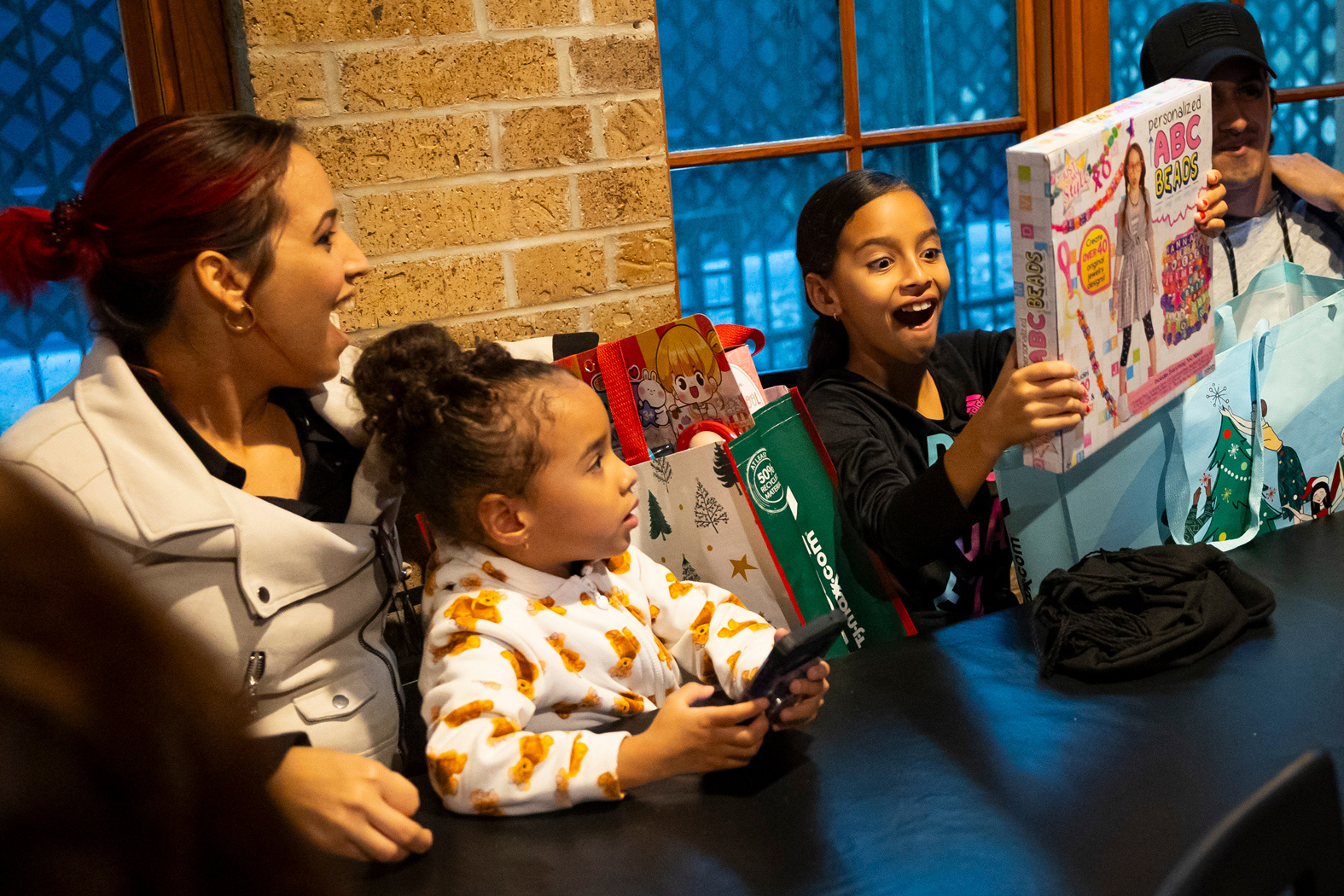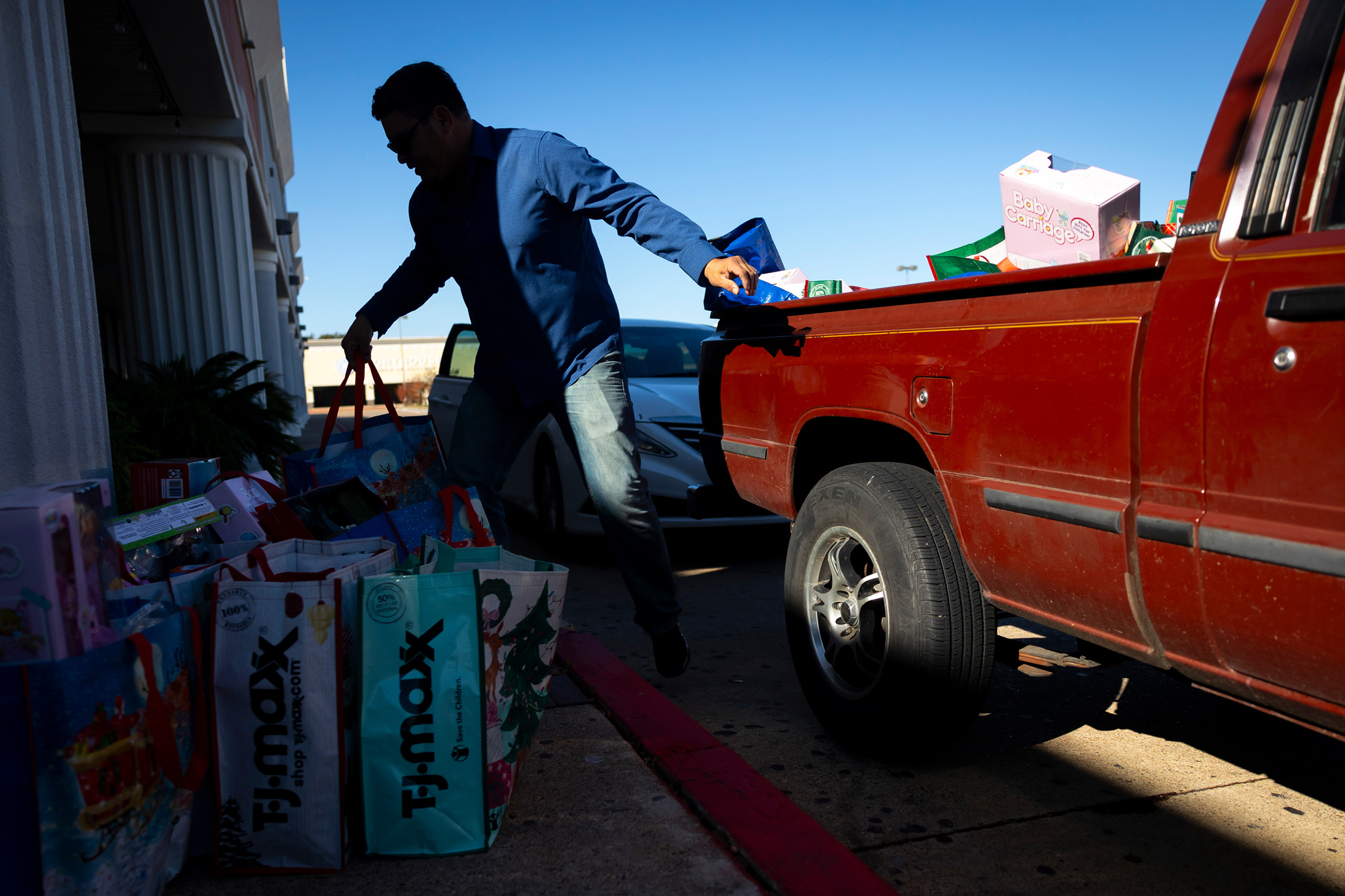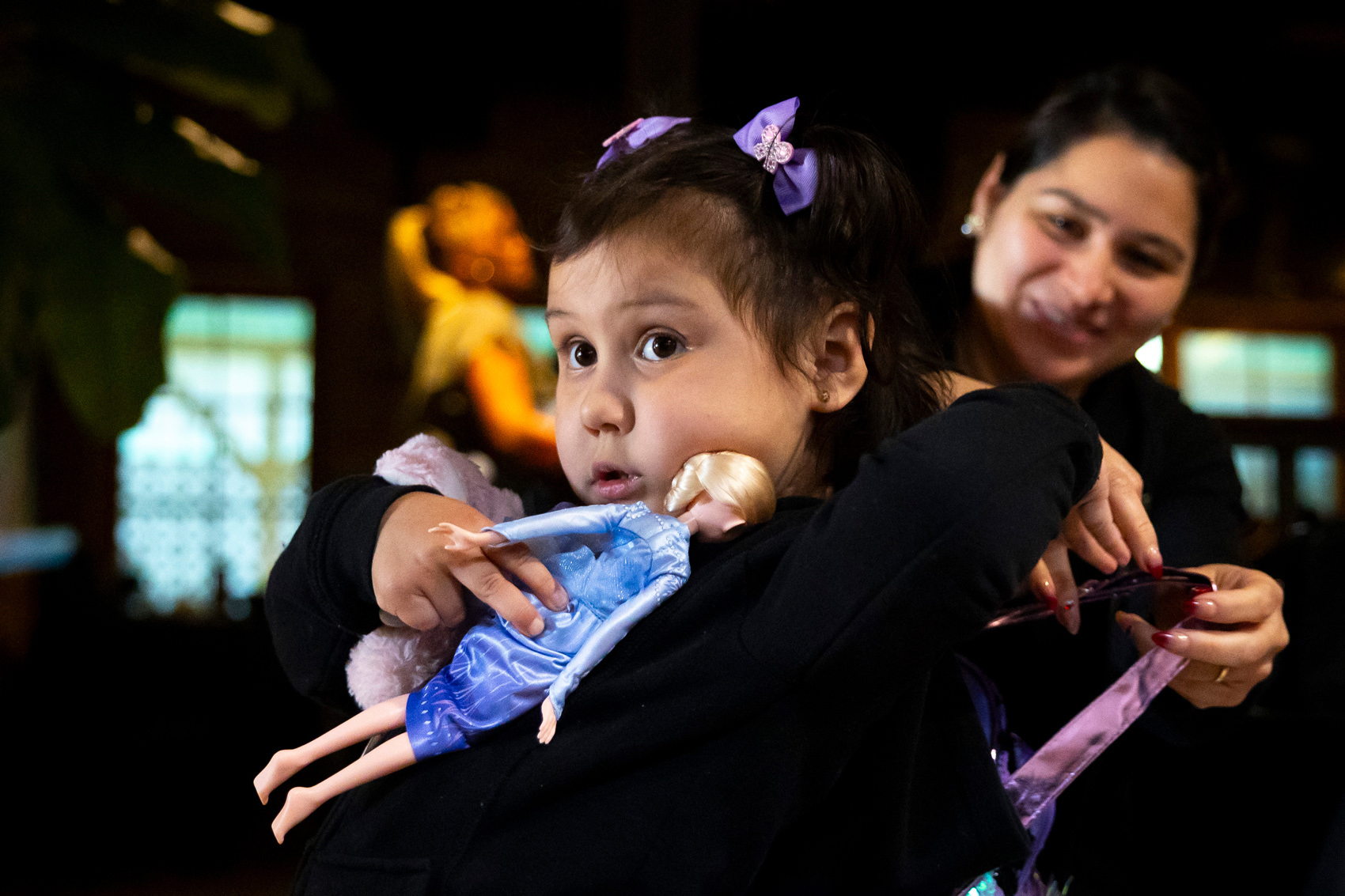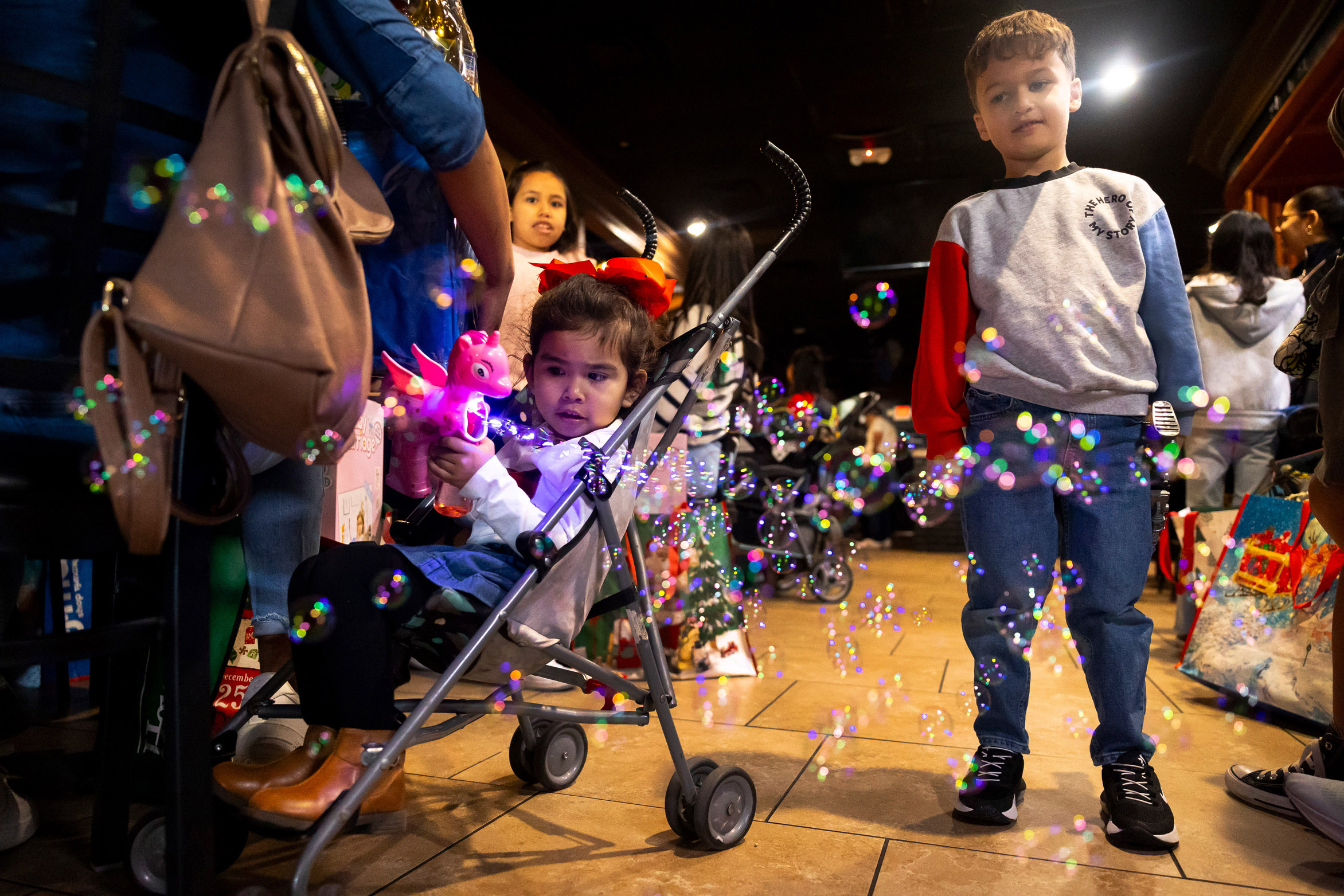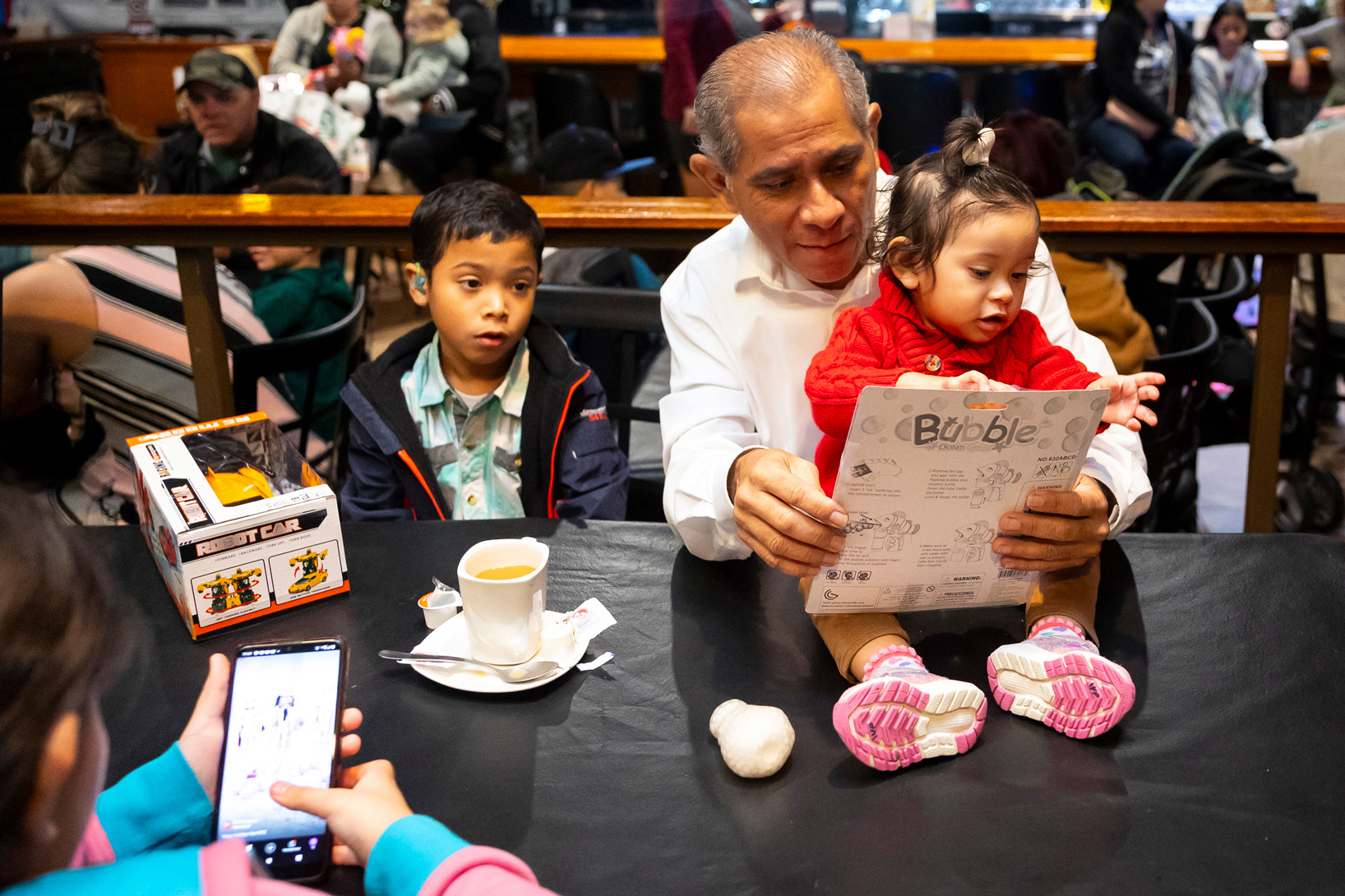|
Getting your Trinity Audio player ready...
|
Jose Leandro Carrera watches his 3-year-old son Ethan run around with a toy gun at a Cuban restaurant in Houston, free from the worry he carried in Cuba of what would happen if his son fell and scraped his knee.
“If your kid gets sick or if you get sick, and you don’t have a relative in the U.S. to send you the needle for the stitches or the bandage, or if you break your arm and you don’t have someone to send you the splint, you can’t fix it,” Carrera, 32, said. “Simply because there is nothing.”
Carrera, his wife and son moved to Houston about a year ago. He and others are part of the city’s growing Cuban population who have left behind extreme hunger, a crumbling health care system, and increasing political repression that has led to at least 1,000 political prisoners. As Cuba experiences one of its biggest exoduses in decades — or perhaps ever — more Cubans are making Houston their home, drawn by family connections, an affordable cost of living and job opportunities in key sectors, such as health care.
Cubans are one of the fastest-growing immigrant populations in Houston, growing from 10,000 people in the Houston metro area between 2006 and 2010 to 34,000 from 2017 to 2021, according to a November 2023 report by the Migration Policy Institute, a think tank based in Washington, D.C.
Other data shows this population has continued to grow. The U.S. Customs and Border Protection’s Houston field office reported that 3,872 Cubans were apprehended or placed in removal proceedings in fiscal year 2023, up from just 23 in 2022 and 17 in 2021. The number of Cubans encountered in Texas overall in fiscal year 2023 was 92,742. When adding in Houston’s surrounding areas, the Cuban population is likely much bigger, said Adolfo Rodriguez, director of Houston nonprofit Casa Cuba.
“I imagine about 100,000 Cubans here,” said Rodriguez.
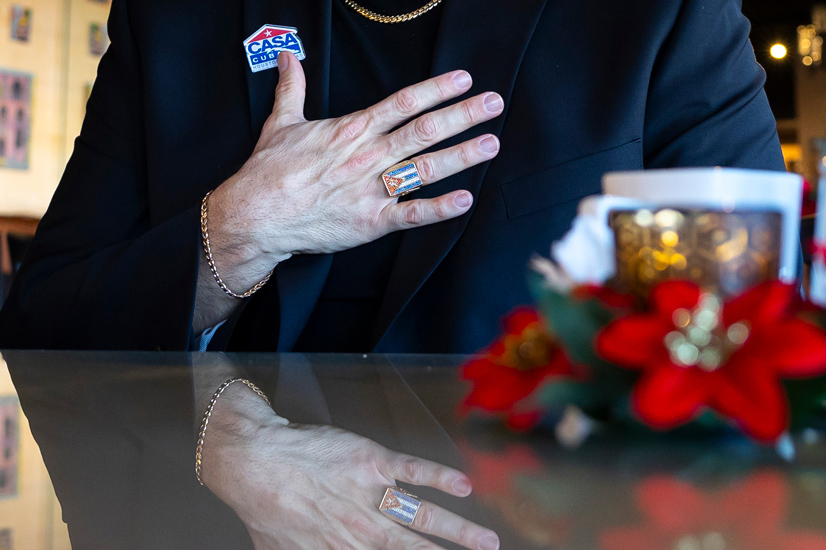
Policy shifts
Since the 1960s, U.S. immigration policy has provided many Cubans with a pathway to U.S. residency and citizenship not available to other countries. Under the Cuban Adjustment Act of 1966, certain Cuban citizens who have been “inspected and admitted or paroled” and have been in the U.S. for one year can apply for residency.
Carrera’s wife, Sandra, and Ethan traveled first to the U.S. and settled in Houston with her extended family. As citizens of Spain (in addition to Cuba), Sandra and Ethan didn't need a visa to enter the U.S. so they were able to fly here directly. Without this option as a dual citizen, Carrera flew to Aruba and then Nicaragua, where he began his four-country odyssey to the U.S.-Mexico border. After turning himself in to immigration officials, he was released with parole, he said. Carrera recently applied for his residency through the Cuban Adjustment Act, as did his wife and son.
However, this avenue has become more restricted in recent years, ever since the Barack Obama administration normalized diplomatic relations with Cuba. Obama revoked the long-standing wet foot/dry foot policy in 2017 that allowed all Cubans who reached U.S. soil to be paroled and opened the door for them to receive residency within a year.
“It was a game changer,” said Karen Pina Castillo, a social worker who works with Cuban immigrants in Houston through refugee service organization The Alliance.
Now, some Cubans who arrive at the border receive removal notices, which limit their chances to get a green card through the Cuban Adjustment Act. So some Cubans at the border open asylum cases, another potential pathway to residency. In the past two years, a record number of 440,000 Cubans have come to the U.S., according to data from U.S. Customs and Border Protection, presenting a challenge for the Biden administration at the U.S. southern border.
In January 2023, to expand legal pathways for immigrants and prevent bottlenecks at the border, President Joe Biden announced a new parole program for Cubans, Venezuelans, Haitians and Nicaraguans. More than 35,000 Cubans arrived in the U.S. in the first six months of the program, according to government data.
This has partially reduced the number of Cubans arriving at the border, but the dire conditions in the country mean the exodus continues.
“People have lost hope that anything will get better,” said Susan Eckstein, professor of international relations and sociology at Boston University who has studied Cuban immigration.
Why Houston?
Although Miami and South Florida have long been the primary destination for Cuban immigrants, Houston has become an increasingly popular place to establish roots.
Rodriguez of Casa Cuba was among the first Cubans to make Houston their home in the late 1960s.
“We had family in Miami, but my dad had his brother here in Texas,” Rodriguez said. “And he said, ‘Look man, the Texas economy, it's great.’ That was in the '70s when it had that oil boom. ‘So you want to make some money, you want to work. Come down.'”
Since then, Rodriguez has seen Houston’s Cuban population multiply, driven both by the humanitarian and political crisis in Cuba and the opportunities in Houston, particularly in the medical field where Cubans are highly trained.
“Here they get decent jobs, you know, and you can live here,” Rodriguez said. “Making 15 bucks an hour here is better than a person making 15 bucks in Florida.”
Kirina Rodriguez (no relation to Adolfo), a 55-year-old nurse, remembers when she first arrived in Houston in 2007 after qualifying for a refugee resettlement program that placed her here because of her health care background.
“When I arrived, there were few Cubans, but today the Cuban community has grown,” Rodriguez said. “Now you can find Cuban food that, before, you couldn’t find anywhere. You can find a Cuban working in a hospital as a doctor or nurse. You can find a Cuban working for NASA. You can find Cubans everywhere.”
Since settling in Houston, Kirina Rodriguez’s son, 29, has also become a nurse working at a Houston hospital. Other relatives have left Cuba to choose Houston as their home.
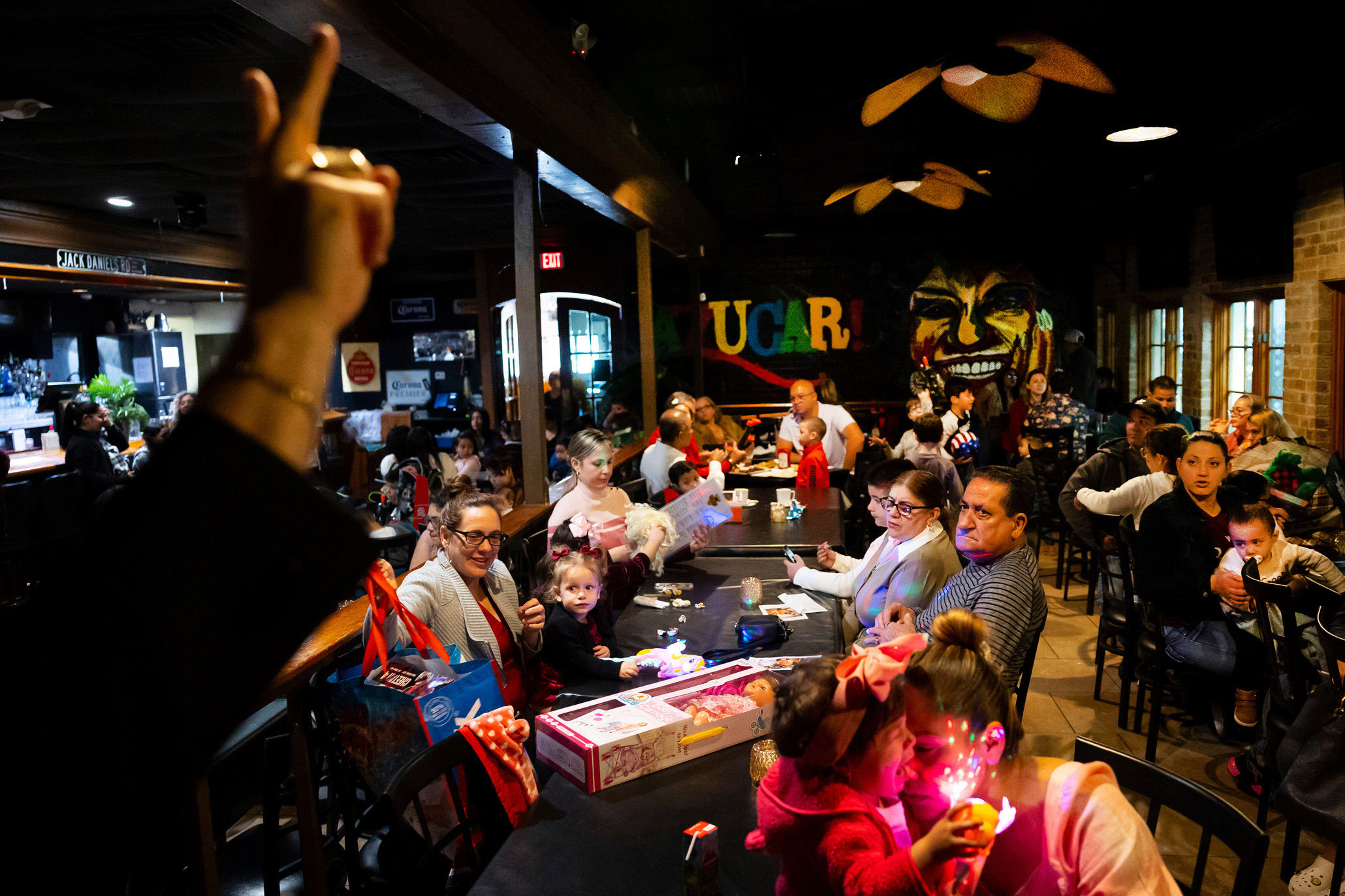
Adjusting to their new home
Houston’s vast highways and sprawling suburbs are often a drastic change for new Cuban arrivals. Even small daily errands, like a trip to the grocery store, can cause culture shock for Cubans long accustomed to food shortages.
When Rodriguez brought his recently arrived cousin to the supermarket, he was surprised to see him teary-eyed.
“We don’t have this,” he told him, staring down the aisles of food.
Other recent arrivals struggle to get up to date on technology after living on an island where the government still tightly controls internet access.
“In Cuba, you don’t know Microsoft. You don’t know Excel. You don’t know Word. You’ve got to learn all that,” Rodriguez said.
Casa Cuba provides tech training as well as English classes.
Finding work also presents a major challenge, because many Cubans can wait years or months to have their work permits approved depending on their immigration case. Many believe it will be quicker once they apply for the Cuban Adjustment Act.
“They have these assumptions, and it’s really hard sometimes to explain that it doesn’t work like that,” said Pina Castillo of The Alliance, which helps refugees adjust to living in the U.S. through refugee cash assistance, medical support and job training services.
The organization has seen an increase in Cubans seeking assistance since 2021, with nearly 3,000 Cubans served in 2023 alone.
Carrera misses some parts of Cuba – playing dominoes and lounging by the beach – but he’s embracing his new home. Although much of Carrera’s family lives in Miami, he doesn’t plan to leave Houston any time soon.
“Here [in Houston], I feel good, I feel safe, I feel comfortable,” Carrera said. “I think I can make a life here.”


